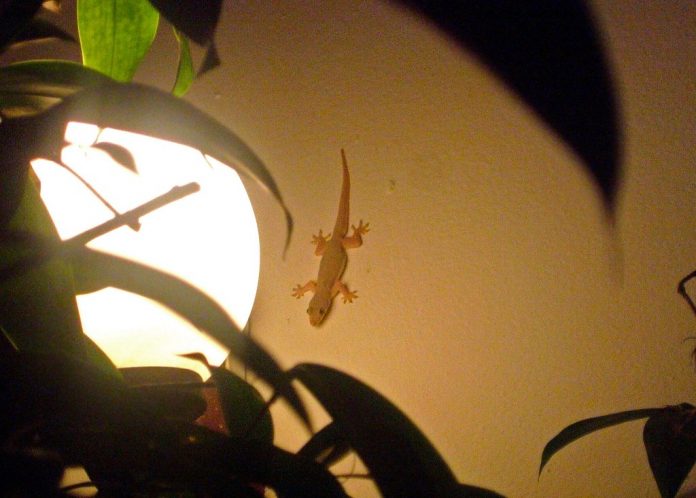Humane Society International/Europe and Humane Society International/Viet Nam have cautiously welcomed the signing of the EU-Viet Nam Free Trade Agreement in Hanoi on Sunday 30 June. While this trade deal offers little beyond cooperation, technical assistance and capacity building with respect to advancing animal welfare, it does have significant potential to protect wildlife, if resourced adequately.
“It is encouraging that the EU has succeeded in negotiating a trade deal that goes beyond the usual boilerplate commitments from the Parties, to properly implement and enforce multilateral environmental agreements. The inclusion of provisions that require both the EU and Viet Nam to actively take effective measures to reduce illegal wildlife trade, such as awareness raising campaigns, monitoring and enforcement measures, is an incredibly helpful tool to aid the global fight against wildlife trafficking,” said Dr Joanna Swabe, HSI/Europe’s senior director of public affairs.
“Likewise, we welcome the explicit commitment in the agreement to enhance cooperation between the Parties to increase species protection through proposing new listings on the Convention on International Trade in Endangered Species of Wild Fauna and Flora (CITES) appendices. This move could help protect a variety of species from over-exploitation to supply, for example, the exotic pet trade. In this regard, we applaud the EU and Viet Nam for already starting this cooperation by submitting proposals to list various salamander, gecko and newt species on CITES Appendix II at the upcoming COP18 meeting that will be held in Geneva this August,” Swabe concluded.
“Viet Nam used to be one of the top countries rich in biological diversity. Unfortunately, Viet Nam is facing “empty/silence forests” due to habitat loss, massive poaching and illegal wildlife trade originating from within or outside of our borders. Recent research indicates that Viet Nam continues to serve as a source, consumer and transit country for the illegal wildlife trade (IWT). Limited enforcement capacity, equipment, resources and lack of cooperation among enforcement agencies are some of the key reasons why much wildlife trade goes unregulated and laws enforcement is not strong enough to combat wildlife crime. HSI/Viet Nam hopes that, as a result of this trade agreement, the EU can help provide financial support for our government’s efforts to help curb the trade in wildlife products and to assist with demand reduction and enforcement by providing Viet Nam with the training and tools it needs through development cooperation,” added Phuong Tham, executive director of HSI/Viet Nam.
Once the EU-Viet Nam trade agreement provisionally enters into force, both HSI/Europe and HSI/Viet Nam intend to apply to join the respective Domestic Advisory Groups that will be established to allow civil society representatives to monitor the implementation of this free trade agreement.
A list of reptile and amphibian species
In August 2018, the EU and Viet Nam agreed on final texts for the EU-Viet Nam trade and investment agreements. The agreement has finally been signed following endorsement by the Council of the European Union. Once the European Parliament has given its consent to the agreement, it can fully enter into force.
The Trade and Sustainable Development Chapter of the EU-Viet Nam agreement includes commitments to the proper implementation and enforcement of multilateral environmental agreements, as well as provisions aiming to protect biodiversity and reduce illegal wildlife trade through information exchange on strategies, policy initiatives, programmes, action plans and consumer awareness campaigns, plus a commitment to enhance cooperation to increase species protection through proposing new CITES listings.
The EU and Viet Nam have already jointly submitted proposals for the upcoming CITES COP18 meeting to list the follow reptile and amphibian species on CITES Appendix II:
All 13 species of gecko (genus Goniurosaura) distributed in China and Viet Nam, including three endemic to Viet Nam: G. catbanensis, G. huulienensis and G lichtenfelderi;
13 species of salamander (Paramesotriton) distributed in Viet Nam and China, including a famous native species found primarily in Tam Dao national park, Paramesotriton deloustali;
Many species of newts, known as crocodile newts or knobby newts (Tylototriton) distributed in Southeast Asia and China, including one endemic to Viet Nam, Tylototriton vietnamensis.
Rhino horn is valued in countries like China and Viet Nam for purported medicinal benefits, although there is no scientific evidence to back these claims. Horn can be sold for high prices on the black market, but there are indications that the price has fallen recently in Viet Nam, thanks in part to a campaign to reduce rhino horn demand launched in 2013 by HSI and the Vietnamese government. The multi-faceted campaign has reached an estimated 34 million people – approximately one third of the national population.
In 2016, HSI arranged the first-ever Pangolin Range States Meeting, co-hosted by the governments of Viet Nam and the United States, and attended by over thirty pangolin range states in Viet Nam. In September 2018, HSI in partnership with Forestry Administration of Viet Nam Ministry of Agriculture and Rural Development conducted a national consultation to develop one National Action Plan on Pangolin Conservation.
Since early 2019, HSI, in partnership with Dong Nai Forest Protection Department and Department of Forest Protected Areas under Forestry Administration of Viet Nam Ministry of Agriculture and Rural Development, has been implementing a project in Dong Nai to prevent and mitigate Human Elephant Conflict in a humane manner.

